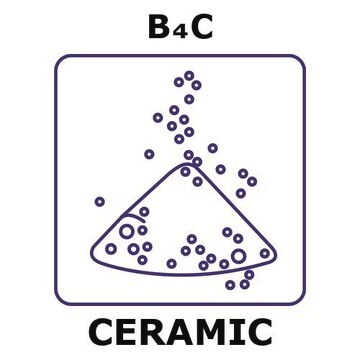433667
Titanium
evaporation slug, diam. × L 6.3 mm × 6.3 mm, ≥99.99% trace metals basis
About This Item
Recommended Products
Quality Level
Assay
≥99.99% trace metals basis
form
evaporation slug
autoignition temp.
860 °F
resistivity
42.0 μΩ-cm, 20°C
diam. × L
6.3 mm × 6.3 mm
weight
~0.8 g (one slug)
bp
3287 °C (lit.)
mp
1660 °C (lit.)
density
4.5 g/mL at 25 °C (lit.)
SMILES string
[Ti]
InChI
1S/Ti
InChI key
RTAQQCXQSZGOHL-UHFFFAOYSA-N
Related Categories
Storage Class Code
11 - Combustible Solids
WGK
nwg
Flash Point(F)
Not applicable
Flash Point(C)
Not applicable
Personal Protective Equipment
Choose from one of the most recent versions:
Already Own This Product?
Find documentation for the products that you have recently purchased in the Document Library.
Articles
Can there be an effective strategy for finding breakthrough materials, since they are, by definition, unpredictable? One answer is found in Combinatorial Materials Science techniques, which represent a powerful approach to identifying new and unexpected materials.
Biomedical implants are essentially foreign substances within the human body that must survive many years’ exposure to demanding mechanical and physiological conditions. Despite these challenges, metal implants have been widely used to substitute for or rebuild hard tissues such as bones and teeth.
Our team of scientists has experience in all areas of research including Life Science, Material Science, Chemical Synthesis, Chromatography, Analytical and many others.
Contact Technical Service





